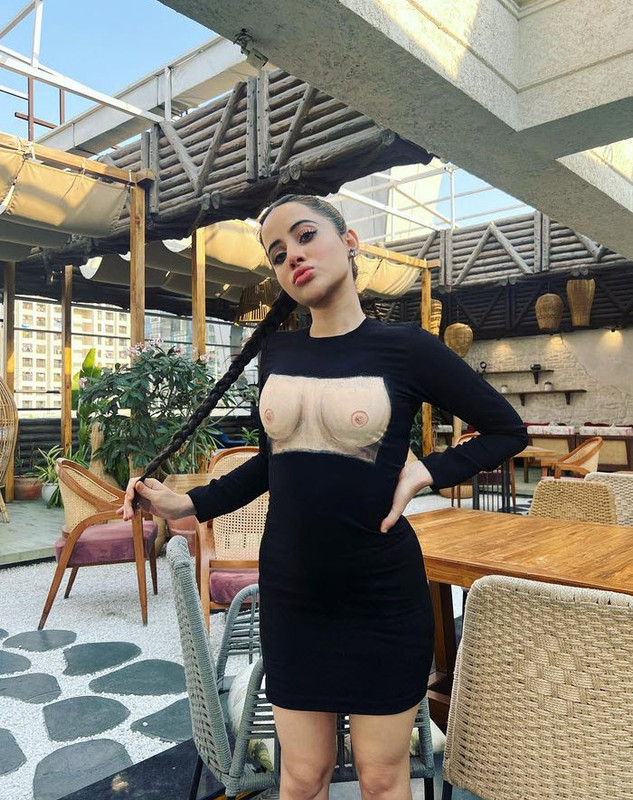Recently Added

Urfi Javed Recently Wore a Bodycon Dress
Urfi Javed, an Indian television actress and model, recently wore a bodycon dress with painted-on breasts to a public event, sparking controversy and outrage among some netizens. Many people criticized the outfit as obscene and inappropriate for public display.
The dress, which featured a design that resembled the outline of two large breasts, drew sharp criticism from social media users who felt that it was disrespectful to women and promoted objectification. Some commenters even went so far as to call for Javed to be arrested and jailed for her choice of attire.
The controversy highlights a larger debate over the role of women's bodies in public discourse and the often restrictive societal expectations placed on women when it comes to their clothing choices. While some people argue that Javed's dress was a form of self-expression and an exercise of her right to freedom of speech, others feel that it crossed a line and was inappropriate for a public setting.

It's worth noting that dress codes and cultural norms around what is considered appropriate attire can vary widely depending on the context and location. What is considered acceptable in one culture or community may be seen as offensive or provocative in another. As such, it's important to approach these issues with sensitivity and respect for different perspectives.
Ultimately, the controversy over Javed's dress highlights the need for ongoing conversations around gender, sexuality, and public representation. As we continue to push for greater gender equality and women's empowerment, we must also challenge restrictive cultural norms that limit women's freedom of expression and perpetuate harmful stereotypes.
Only by promoting a more inclusive and equitable society can we create a world where everyone is free to express themselves in their own unique way.
